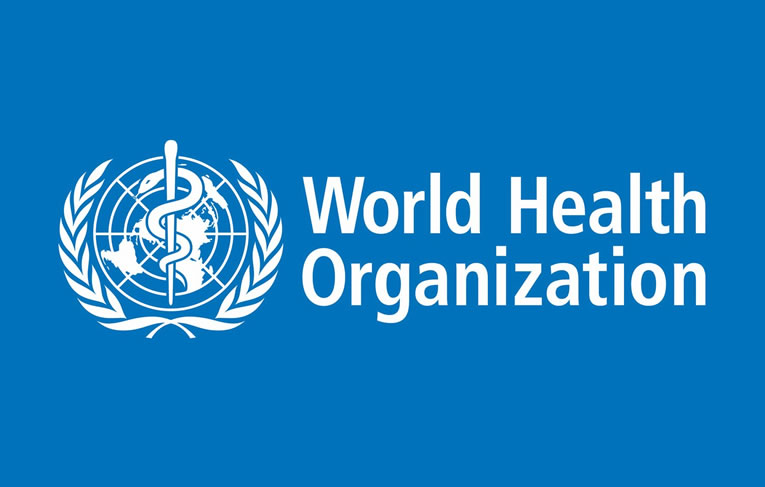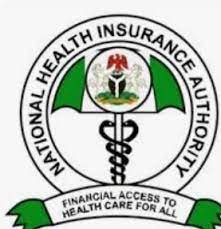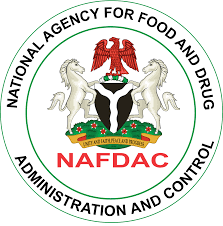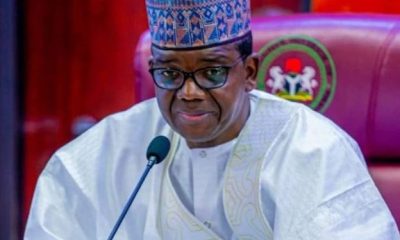Health
WHO Welcomes Trial on Dexamethasone Medicine for Treatment of COVID-19

The World Health Organisation has welcomed the initial clinical trial results from the United Kingdom (UK) that show dexamethasone, a corticosteroid, can be lifesaving for patients who are critically ill with COVID-19.
Dexamethasone is a steroid that has been used since the 1960s to reduce inflammation in a range of conditions, including inflammatory disorders and certain cancers.
It has been listed on the WHO Model List of Essential Medicines since 1977 in multiple formulations, and is currently off-patent and affordably available in most countries.
Dr Tedros Ghebreyesus, Director-General, WHO, said this at a news conference at WHO headquarters in Geneva on Wednesday.
He said: “On Tuesday, there was the welcome news of positive initial results from the RECOVERY trial in the United Kingdom.
“Dexamethasone, a common steroid, has been shown to have a beneficial effect on those patients severely ill with COVID-19.
“According to the early findings shared with WHO, for patients on oxygen alone the treatment was shown to reduce mortality by about one fifth.
“And for patients requiring a ventilator, mortality was reduced by about one third.’’
However, the director general said dexamethasone was shown to not have a beneficial effect for those with milder disease, who did not need respiratory support.
“This is very welcome news for those patients with severe illness, these drugs should only be used under close clinical supervision.
“We need more therapeutics that can be used to tackle the virus, including those with milder symptoms.
“WHO has now started to coordinate a meta-analysis pooling data from several clinical trials to increase our overall understanding of this intervention.
“We will update our clinical guidance to reflect how and when dexamethasone should be used to treat COVID-19,’’ he said.
Ghebreyesus therefore thanked the United Kingdom government, the University of Oxford, and the many hospitals, researchers, patients and families who had contributed to this scientific breakthrough.
“WHO will continue to work with all partners to develop other therapeutics and vaccines for COVID-19, including through the Access to COVID-19 Tools Accelerator.
“Over the coming weeks and months, we hope there will be more treatments that improve patient outcomes and save lives.
“While we are searching for COVID-19 treatments we must continue strong efforts to prevent as many infections as possible by finding, isolating, testing and caring for every case; and tracing and quarantining every contact,’’ he said.
According to him, COVID-19 is affecting the whole world but it is important to remember that for the most vulnerable communities, this is just one of many threats they face.
“We have consistently stressed the importance of ensuring essential health services continue, including routine vaccination and services for malaria, TB and HIV.’’
The director general, however, spoke on the need to give attention to the Neglected Tropical Diseases (NTDs).
“NTDs are a group of 20 diseases including elephantiasis, sleeping sickness, leprosy, trachoma and intestinal worms that collectively wreak havoc on the poorest and most marginalised communities.
“These diseases disfigure, disable and can kill, and they strike hardest in places of poverty and in remote areas where access to quality health services is extremely limited.
“WHO and partners have developed a new roadmap which moves away from single disease programmes to integrated approaches.
“It moves away from single diseases programme to the integrated approaches in prevention, diagnosis and treatment of neglected tropical diseases, as part of an overall movement toward universal health coverage,’’ he said.
According to him, the NTDs roadmap puts greater ownership on national and local governments to drive action.
“Like with COVID-19, it calls for greater collaboration between governments, academia, civil society and the private sector in order to boost innovation and access to health technologies.
“I have seen first hand the courage of people who are living with NTDs, which is why I call on countries not to forget about the most vulnerable,’’ he said. (NAN)
Health
TB: Nigeria’ exceeded WHO’s targets by 15% despite covid-19 – Experts

By Laide Akinboade, Abuja
The National Coordinator of the African Coalition on Tuberculosis in Nigeria, Ibrahim Umoru, recently said despite Coronavirus (Covid-19) challenges, Nigeria was able to exceed World Health Organisation, WHO’s by 15%.
Umoru stated this at the community sessions of the just concluded National TB conference in Abuja, where delegates from over 20 countries shared their country-specific experiences on TB elimination.
He emphasized the need for resources and commitment, as exemplified during the COVID-19 pandemic in achieving the goal of ending TB by 2030 in Nigeria.
He therefore urged for broader collaboration, political will and realignment of priorities, Umoru explained if well meaning corporations and individuals prioritized and champion TB cause like other causes, the end of TB fight is imminent.
According to Umoru, “With the right diagnostics, resources, and support, we can achieve the 2030 goal,” he said.
Similarly, Deborah Ike, the Executive Director of the Debriche Health Development Centre (DHDC), highlighting the challenges being confronting Nigeria in the fight against TB stress the need to break all barriers in order to meet the 2030 target for TB eradication.
Ike noted that a lot more needs to be done in the areas of education and awareness as stigmatization and discrimination remain major barriers.
“Even though testing and treatment are free in Nigeria, many still die because they’re afraid to access these services.
“Some people avoid seeking treatment because they fear being judged.
“Others have lost jobs due to TB, which not only worsens their economic situation but can also lead to further psychological and physical decline.”
Ike emphasized the critical need for effective information dissemination to combat stigma, adding that it is important for people to understand that a person on treatment can no longer spread the disease, unlike one who has refused to be treated.
“This knowledge will reduce fear, encourage treatment, and help cut the chain of transmission”.
A Director for Tuberculosis at Breakthrough Action Nigeria, Dr Bolatito Aiyedigba, highlighted some of the innovations used to increase case detection such as the Check Am slogan, to encourage community people to test their lingering coughs.
”Some of the innovations were introduced during the COVID-19 era, COVID came with cough and cough is usually associated with tuberculosis as well. So it could be tuberculosis. Not every cough is due to COVID, so check it.
”Cough is due to different kinds of illnesses. And until you check, you will not know. And we also worked with the national TB hotline, when they call, they are directed on what to do, asked more questions and their fears are allayed, so they can get the appropriate testing. So that really, really helped. In addition to all the other innovations that came into the facility, testing was also improved.”
Aiyedigba also informed that the stigmatisation of people living with TB is still very high in Nigeria, noting that the country needs to tackle the menace.
”This is the next line of action that we’re going to tackle. Because now we’re fighting the TB cases, we’re putting them on treatment but we have to address the issue of stigma.
”And the stigma starts from self-stigmatisation, there’s no need to stigmatise yourself for having tuberculosis because tuberculosis is curable and treatable.
National TB Conference is an annual event organisedthe Stop TB Partnership Nigeria. The 2024 edition , themed “Public-Private Partnership and Integrated Service Delivery: Panacea to End TB in Nigeria,” was organised by the Stop TB Partnership Nigeria in collaboration with the Federal Ministry of Health and Social Welfare.
The three day event brought together Representatives from Stop TB Partnership Geneva, public health experts, community and civil organisations, private and public stakeholders from across the world, amongst many others.
Health
Malnutrition: 40% children are stunted in 2023 – FG

By Laide Akinboade, Abuja
The Federal Government, FG, at the weekend revealed that about 40% of the 35 million under 5 children in Nigeria are stunted in 2023.Director and Head of Nutrition Department, Federal Ministry of Health and Social Welfare, Ladidi Bako-Aiyegbusi, revealed this at the 8 annual conference, organized by the Association of Nigeria Health Journalists, ANHeJ, in Abuja.
She said 8% are wasted, 27% are under weight, and 29% are Successfully breastfed, SBF. The theme for the two day conference was, ‘SWAP effectiveness in addressing poor health outcomes: The role of the media’.According to her, ” Globally, Nigeria is raved 2 and 1 in Africa in the number of children suffering from Severe Acute Malnutrition, SAM. Furthermore, research shows that, 31% of women consumed Iron and folic acid (IFA) supplements during pregnancy and out of the 35 million children under 5 years of age population, 14 million children are stunted while 3 million are wasted. “Out of 7 million children born per year in Nigeria 42% are breastfed within an hour of birth. 29% exclusively breastfed upto 6 months of age . 3% breastfed upto 23 months of age. 23% receive diverse diet (minimum 5 groups). 11% receive minimally acceptable diet . 26% vitamin A supplementation coverage” .Bako-Aiyegbusi, who enumerated the causes of malnutrition in Nigeria which include, inadequate food intake, lack of dietary.diversity , and infectious diseases. On what the federal government is doing, she said the government has done the revised National policy on food and nutrition in Nigeria which provide an overarching framework for multisectorial action, to reduce malnutrition in the country. Earlier, the FG also reiterated its commitment to accessible health policies and services that are geared towards achieving improved health outcomes in Nigeria.The Permanent Secretary, Federal Ministry of Health and Social Welfare, Daju Kachollom, who was represented by Dr. Angis Ikpe, of the policy and planning department of the Ministry, explained that in order to achieve improved health outcomes in the country, the Ministry have embraced the Sector-Wide Approach (SWAp) strategy to unify the efforts of thegovernment, partners, and stakeholders, maximizing impact, enhancingaccountability, and eliminating redundancies.According to Kachollom, the Nigeria Health Sector Renewal Investment Initiative (HSRIl) exemplifies the government unwavering commitment to revitalizing the health sector “Through targetedinvestments, we aim to strengthen primary healthcare (PHC) systems to deliver efficient maternal and child health services, tackle Neglected Tropical Diseases (NTDS), address Non-Communicable Diseases (NCDs), and confront infectiousdiseases. “These efforts also include a robust, ongoing response to HIV/AIDS andTuberculosis and Malaria.In the field of Maternal and Child Health, we remain unwavering in our commitmentto enhance service delivery and improve health outcomes.”The strengthening ofovision Primary Healthcare (PHC) systems, bolstered by the Basic Healthcare Provision Fund (BHCPF), has significantly increased access to vital services in underserved communities. Notably, the Maternal and Newborn Mortality Reduction InnovationInitiative (MAMII) exemplifies these efforts by offering free cesarean sections to eligible women, thereby improving maternal and neonatal outcomes.”The Permanent Secretary also commended the invaluablecontributions of health journalists in shaping public perception and holding stakeholders accountable, reaffirmed the government’s commitment to working hand-in- hand with the media in promoting health awareness, countering misinformation, andensuring transparency and accountability within the health sector.The Chief Executive Officer of the Institute of Human Virology Nigeria (IHVN), Dr Patrick Dakum, in his good will message commended ANHEJ’s consistency in sustaining the forum for the press and stakeholders in the health sector together, deliberate on pertinent issues, and forge a way forward for better health in Nigeria. Dakum noted that the theme of the conference is apt, as the importance of collaboration in strengthening health systems can not be overemphasized. He further said the IHVN remains committed to aligning its activities with the Government of Nigeria’s health sector plans. Recognising other roles of the media, such as holding the government accountable to its people and encouraging better domestic funding for health programs and research, commended ANHEJ for the initiative in ensuring that the health needs of all Nigerians are met. The President of ANHEJ, Mr Joseph Kadiri, earlier in welcome address, said theme of the conference is aimed at addressing the numerous challenges confronting Nigeria’s health sector, such as inadequate funding, inefficient resource allocation, and poor service delivery. “As journalists, we play a vital role in promoting health awareness, education, and advocacy. Through our reporting, we can hold stakeholders accountable for their actions and policies, provide a platform for marginalized voices to be heard, promote evidence-based health information and best practices, and advocate for policy changes and increased funding for health programs.”He noted that despite the media’s potential to enhance SWAp effectiveness, several challenges persist, including limited access to health information and data, inadequate training and capacity building for health journalists, and insufficient funding for health reporting and programming. The President further reiterates ANHEJ’s interest in supporting the federal government and development partners in the amplification of their activities through its health promotion reportage and programmes.Health
Nigeria Exceeds 2024 Health Insurance Target, Hits 95% of 2027 Goal – DG NHIA

The National Health Insurance Authority (NHIA) says 19.2 million citizens have enrolled into health insurance scheme surpassing its 2024 target
Dr Kelechi Ohiri, Director-General, NHIA, disclosed this in Abuja, at a Universal Health Coverage (UHC ), day commemoration roundtable to reflect on Nigeria’s UHC quest, identify challenges, and chart a course of action.
The roundtable was part of the activities lined up for the commemoration of the 2024 UHC Day
It was to reflect on Nigeria’s UHC quest, identify challenges, and chart a course of action.
Ohiri said this feat was a significant milestone in NHIA’s efforts to expand access to healthcare for Nigerians under health insurance scheme.
According to him, this achievement surpasses the 2024 target and places the nation at 95 per cent of its ambitious 2027 presidential coverage goal.
He attributed the success to strategic policy reforms, effective collaborations with stakeholders, and an unwavering commitment to universal health coverage (UHC)
“We are proud to announce that 19.2 million Nigerians have been covered by health insurance.
“This surpasses our 2024 target and places us within striking distance of achieving 95 per cent of the 2027 presidential target,” he said.
He said that the NHIA had worked tirelessly to implement innovative strategies.
“This include the expansion of the Basic Healthcare Provision Fund (BHCPF) and partnerships with state health insurance agencies to ensure affordable and accessible healthcare for all Nigerians, especially the most vulnerable populations,” he said.
According to him, the milestone reflects the Federal Government’s commitment to delivering quality healthcare as outlined in the National Health Act.
He urged state governments and private sector stakeholders to intensify efforts aimed at sustaining the momentum and bridging the remaining gaps in health insurance coverage.
He said that the achievement came amid ongoing challenges in Nigeria’s healthcare sector, including funding limitations, infrastructure deficits, and inadequate human resources
However, the NHIA boss expressed optimism, noting that the agency’s strategic roadmap for 2025–2027 includes scaling up digital enrollment processes and integrating informal sector workers into the insurance scheme.
“With the theme of this year’s UHC Day, health should reflect the type of government the country has and must make decisions that represent its aspirations.
“We should prioritise Primary Health Care,(PHC), as the bedrock of our health system,” he said.
Dr Muhammad Lawal, the Commissioner for Health, Yobe, said that UHC was a reality and we must work towards it.
Lawal said that there should be no negotiation for the health of the people, most especially the vulnerable segment of the population.
Dr Bolanle Olusola-Faleye of the USAID LHSS Project, said that it was a remarkable time to celebrate 2024 UHC Day with the presence of reforms such as the Sector Wide Approach (SWAP).
Olusola-Faleye said that SWAp had shown evidence of success in the states through the harmonised Annual Operational Plan (AOP), ensuring alignment of priorities.
Public health advocates have lauded the progress, describing it as a significant step toward achieving UHC in Nigeria.
Dr Garfa Alawode, Co-convener of the UHC2023 Forum, said that it was a commendable accomplishment.
Alawode, however, said that there was still more to do to ensure that every Nigerian can access affordable and quality healthcare services.
As Nigeria inches closer to its 2027 health insurance target, Alawode called for sustained political will, increased funding, and effective monitoring.
“This is to ensure that the gains are not only maintained but also translated into improved health outcomes for all citizens ” he said.
NAN recalls that UHC Day is a global advocacy day to raise awareness about the importance of equitable, affordable, and accessible healthcare for all individuals without financial hardship.(NAN)























